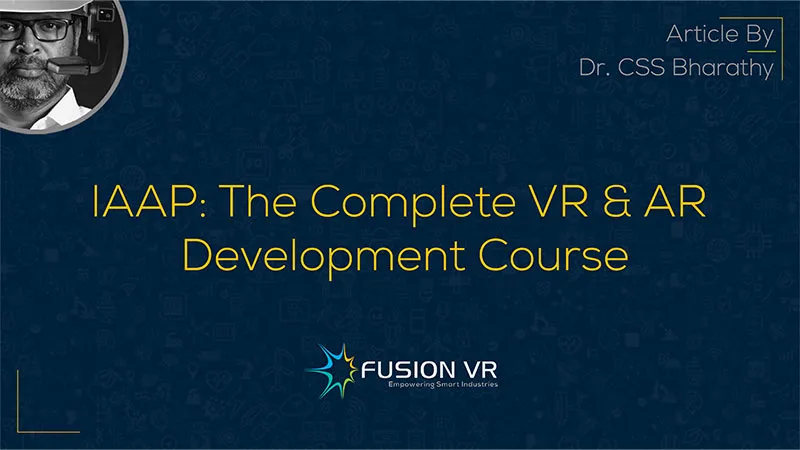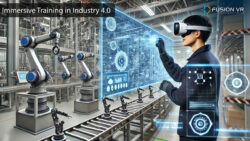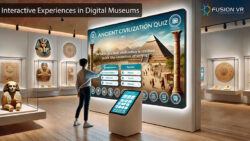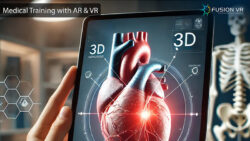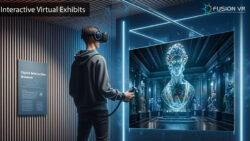With the advent of revolutionising technologies such as Augmented Reality (AR) and Virtual Reality (VR), the demand for learning them and developing applications with these technologies has also increased.
There are many courses these days for an individual to learn about the above XR technologies and their functionalities. If you are a professor or an academician and want your students to have the best knowledge and be updated with all the technologies related to XR (Extended Reality), you need not look very far. The Industry Academic Alliance Program (IAAP), brought to you by Fusion VR in collaboration with ARK Infosolutions, will be the one you need to adopt.
As a faculty member, you’ll get the most comprehensive training from the fundamentals to an advanced level. This would greatly help you understand how an application or solution is developed for AR and VR technologies. After which, you can teach your students the same, with the help of the XR lab, customised and developed for your institution.
AR and VR are two of the most rapidly evolving and disruptive technologies in the world today. They are used in many industries, such as manufacturing, healthcare, retail, gaming, automotive and education. They are also used by businesses to create immersive experiences that can help customers interact with products or services in a virtual environment.
The Industry Academic Alliance Program promises to teach you the fundamentals of AR and VR, including the essentials of how they work and how to build AR and VR applications. You’ll learn about the various components and hardware that make up an AR and VR system, including cameras, sensors, displays, and more. You will also learn about the different software platforms and programming languages like C# used to create AR/VR applications.
The Potential of VR and AR Courses for Education
The Industry Academic Alliance Program will also cover the design process for creating an XR experience. The professors will learn about user experience design and the importance of creating a visually appealing and engaging experience for users. It also helps professors and academicians learn about the different user interface elements that can be used to make an AR and VR experience interactive and engaging.
Unity is a game engine development software which is used to develop applications supported in the XR platform. This software has an app development environment that understands and adapts to XR’s technological framework, and it develops an architecture with smooth Interactions. To learn virtual reality app development, apart from understanding the design structures, one must also gain an understanding of physics, lighting, coding etc.
The Industry Academic Alliance Program from Fusion VR and ARK Infosolutions, who are pioneers in the area of XR technologies like virtual and augmented reality training course and software marketing and support for many decades. It will cover the basic fundamentals to advanced theories involving app development using the software, Unity. While C# is the primary programming language used for Unity, to become a VR developer, the focus is shed upon reaching C# as well, in this course module.
The hardware itself requires a vast understanding of AR-compatible devices that people use on a daily basis, apart from native head-mounted devices is also required. IAAP has a dedicated LMS, which would track the learning progress and self-evaluate the knowledge acquired. Although the final certification is based on an MCQ test and a project submitted by the student, many mock tests can be taken in between with the help of the LMS platform.
IAAP also contains online and offline classes based on the learners’ preferences. As it is the professors who take up this program, offline learning is much preferred due to its ease and in-depth learning experience. The technical support for the hardware we provide for setting up an XR lab is also at its best. We also have a dedicated Success Assurance Plan, which guarantees aftermath support for the learners taking the Industry Academic Alliance Program.
VR and AR courses have the potential to revolutionise the way we learn in the digital age. By providing immersive and interactive experiences, they can enhance our knowledge and understanding of the world around us. As technology continues to evolve, the potential of AR VR courses and the opportunities they also present increases. With the right resources and guidance, like the Industry Academic Alliance Program, professors and academicians can access powerful tools for educating students.

